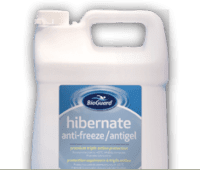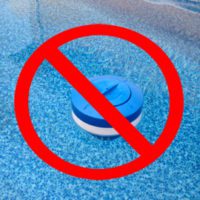The seasons have once again changed and closing your pool seems unavoidable. Before you start, here are a few Winter Preparation Do’s and Don’ts for your pool:
Do’s
- Do Check for leaks before closing – Fixing a leak now will aid in the pools survival over the winter. A leak can become larger over time, and if the pool empties or the water drops too low, the pool may become un-stabilized and suffer expensive repairs or even become demolished.
- Do Balance your pool before beginning the winterizing procedures to make sure the water chemistry is balanced for winter. By balancing the water, you are protecting the pool from staining and etching.
- Do Add winter chemicals – These chemicals are specifically formulated for winter use. They help the fight against algae, stain, corrosion and scum lines.
- Do Clean filter – cleaning your sand or cartridge filter allows you to rid the filter of all the gunk before closing the pool, less chance of that gunk getting into the pool at spring opening or growing further before you are ready to open the pool.
 Do Use Antifreeze – Antifreeze in the lines of an inground pool will help ensure the lines do not crack or split due to freezing in the winter. A buried cracked line can be difficult to find without a special leak detection test, which can be costly to have done. Also use Anti-freeze in the pump to avoid any damage on this part. Use a non-toxic Anti-Freeze that works up to -50 deg. Do not use Anti-Freeze in a chlorinator or brominator. If in doubt of which equipment should have anti-freeze, check the manufacturer’s manual, or contact your pool professional for assistance.
Do Use Antifreeze – Antifreeze in the lines of an inground pool will help ensure the lines do not crack or split due to freezing in the winter. A buried cracked line can be difficult to find without a special leak detection test, which can be costly to have done. Also use Anti-freeze in the pump to avoid any damage on this part. Use a non-toxic Anti-Freeze that works up to -50 deg. Do not use Anti-Freeze in a chlorinator or brominator. If in doubt of which equipment should have anti-freeze, check the manufacturer’s manual, or contact your pool professional for assistance.
- Do Drain filters / pumps and lines – draining the pump and filter and blowing out the lines help to ensure that no water is left in them. Water can cause the plumbing to freeze and crack.
Don’ts
 Don’t Leave a feeder or floater of Chlorine / Bromine in the water – It may be tempting to try and continue to fight algae while the pool is closed, but do not leave your sanitizer to float around after turning the pump system off. The water is no longer circulating and filtering the water. Chlorine left in one location can cause bleaching of the liner.
Don’t Leave a feeder or floater of Chlorine / Bromine in the water – It may be tempting to try and continue to fight algae while the pool is closed, but do not leave your sanitizer to float around after turning the pump system off. The water is no longer circulating and filtering the water. Chlorine left in one location can cause bleaching of the liner.
- Don’t Empty the pool – Although we want to lower the water level in the pool below the return jets and skimmer, we do not want to completely empty the pool as the water is providing stability to the walls – especially in an above ground pool.
- Don’t Leave the pool uncovered – The cover acts as a protector to the liner from any debris that may be blown into the pool by the wind, from both tearing and staining.
- Don’t Use cinderblocks to hold cover in place – Cinderblocks have fallen into many a pool over the years by someone thinking it was a cheap and easy way to hold down their winter covers. Should these fall into the pool the damage that can be done to the liner/pool is very costly.
- Don’t Turn the pool into a skating rink – This is just a bad idea all around. The top layer of the pool may appear to be frozen, but you can not guarantee how thick it is under the top layer. Besides this safety issue, skates can easily put holes, even small ones into the liner and cause leaks.
Pool closing procedures can always be found on line at http://www.rrpools.ca/resources/offers/pool-closing-procedures/. Always feel free to shoot us a message or give us a call if you have any questions about closing your pool.



3 Comments
paula sampson
hey, so we missed your closing seminar, and now we have a couple of questions.
21 ft above ground salt pool.
1. -do you drain the water below the skimmer or can you use a winter skimmer cover (saw a mention in a blog)
2. sand filter- do you drain the water / cover it for the winter
3. there is a light on the return, does that come off? and do you “plug” that hole?
4. If we use pool anti freeze…. does that get drained in the spring?
Kara Redden
Paula we have emailed you. I’m hoping we answered your questions.
Susan Farmer
Do I use antifreeze in a aboveground pool and if so how? I would like to purchase some but not sure how to use it.